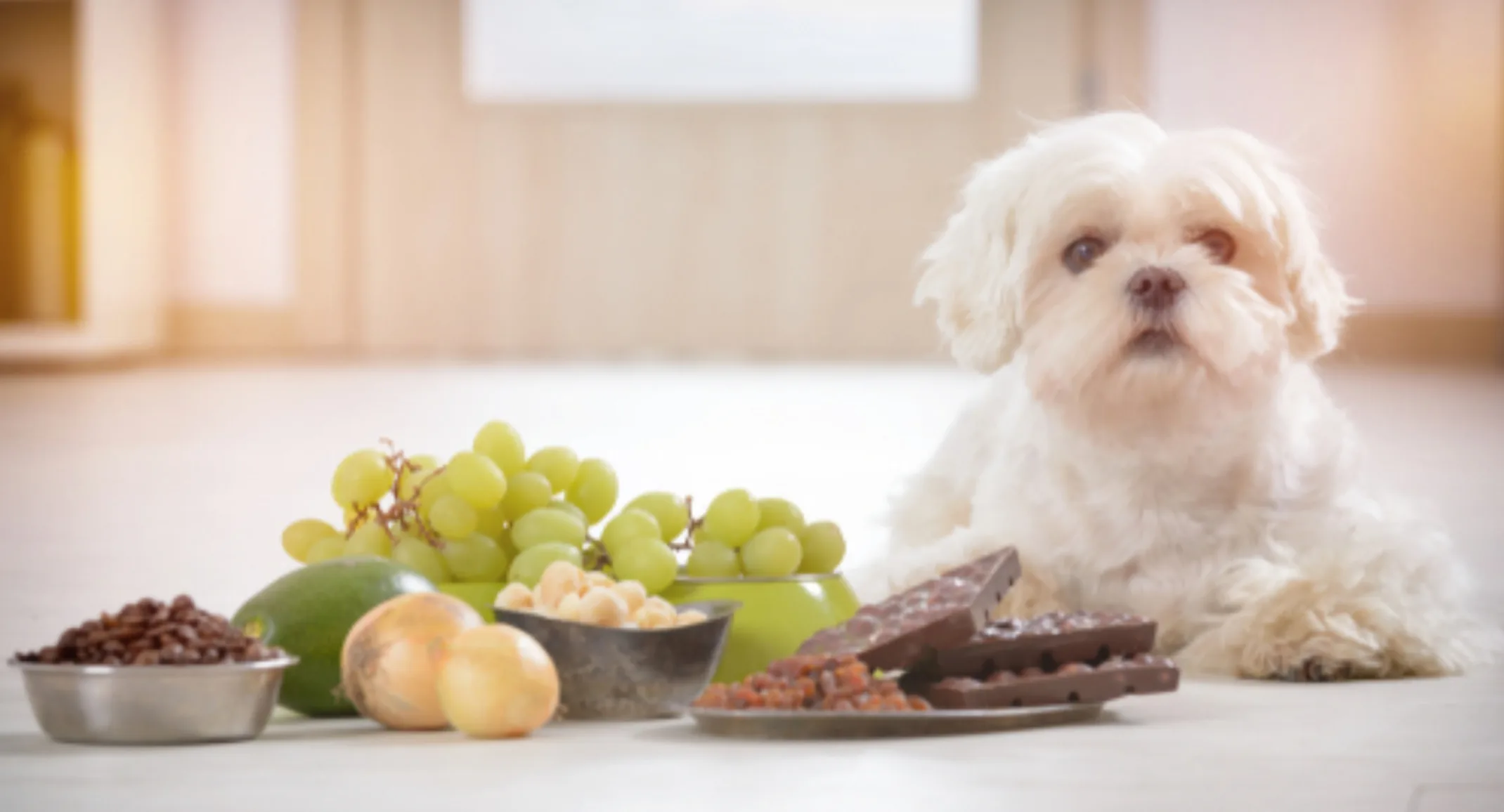Talking Turkey—Thanksgiving Pet Safety
For Pet Owners

Protect them from themselves and the cornucopia of holiday hazards with this Thanksgiving safety guide from Dove Mountain Veterinary.
In the kitchen with your pet
The kitchen is the epicenter of Thanksgiving activity, so naturally you’ll find most pets there. Unfortunately, these furry friends are more a hindrance than a help—pets underfoot can cause owners to trip and fall, spilling potentially hot or pet-toxic foods. Sneaky or unsupervised pets steal food from the counter or the table. Confine mischievous pets to a crate or pen during meal preparation, and keep these dangerous ingredients out of their reach at all times:
Turkey bones and trimmings
Onions, garlic, and leeks
Baking chocolate, dark chocolate, and cocoa powder
Nuts
Xylitol-containing products
Raisins, currants, and grapes
Yeast dough
Alcohol
Also, remember that savvy pets know they can find a free holiday feast in the trash. These dumpster-diving pets commonly consume food wrappers, greasy paper towels, cooked bones, kitchen twine, and corn cobs—which can all cause dangerous intestinal blockages that require surgical removal. To prevent such emergencies, immediately dispose of turkey carcasses, wrapping, or twine, and keep trash cans out of your pet’s reach, such as behind a closed door, or in the garage.
Toxic ingredients can cause dangerous—potentially fatal—effects. If your pet has consumed a dangerous ingredient or an inedible item, immediately contact Dove Mountain Veterinary.
At the table with your pet
As you loosen your belt and place a napkin on your lap, you may feel a nudging nose or pleading paw on your leg. Don’t fall for your pet’s award-winning performance—most Thanksgiving dishes contain ingredients that are harmful or too rich for your pet’s digestive system. Avoid these popular and dangerous holiday handouts:
Turkey skin and trimmings
— High-fat foods can trigger pancreatitis, a painful and potentially life-threatening inflammatory condition, in dogs. Pancreatitis requires hospitalization and aggressive treatment to prevent severe dehydration and organ damage. This Thanksgiving, keep indulgent foods on your plate, and keep your pet out of the veterinary emergency room.
Turkey bones
— Feeding your pet bones is never advisable, especially cooked bones, which can splinter and cause oral lacerations and internal bleeding, and perforate organs. Bones may also cause pets to choke, or become lodged in the pet’s esophagus, stomach, or intestinal tract. Obstructions can be deadly, and require endoscopic or surgical removal.
Pets will be thankful to receive safe and healthy alternatives, such as skinless and boneless white turkey meat, or the following items, served plain (i.e., no salt, butter, sugar, or seasoning):
Sweet potato
Pure pumpkin
Green beans, peas, or carrots
Apple slices
Decorating with your pet
Decorations add a festive flair to your home, but your pet may find your style too irresistible. Many popular holiday items pose problems for playful pets. Use care with the following items, or select safer alternatives:
String lights and garland
— Cats love to swat and chew at twinkling lights and hanging vines of autumn foliage, which can lead to electrical shock, choking, and intestinal blockages.
Candles
— Pets should never be allowed near an open flame, as they can easily be burned, or start a fire.
Floral arrangements
— Holiday centerpieces often feature plants and flowers, including lilies, chrysanthemums, dahlias, mistletoe, and holly, toxic to pets. Remove toxic pieces, or keep arrangements away from pets.
The Christmas tree
— If your holiday tradition includes a Christmas kickoff, ensure your tree base is secure, to prevent tipping or falling. Refresh the water daily for living trees, and avoid chemical additives, which can be toxic to pets. Hang fragile ornaments on higher branches to prevent breakage, and supervise pets at all times, to ensure they don’t chew on the lights.
Entertaining with your pet
If the holidays are overwhelming for you, imagine how your pet must feel. The sudden rush of people, activity, and noise can cause fear, anxiety, and stress in many dogs and cats. Help your pet manage the holiday madness by keeping their routine as normal as possible, and taking the following precautions:
Ensure your pet is wearing current identification
— Nervous pets may slip through an open door or gate, or be accidentally left outside. Update your pet’s identification tags and ensure their microchip is registered, to give them the best chance of being reunited with you.
Create a safe space for your pet
— Set up a quiet space that includes all your pet’s necessities (e.g., comfy bed, toys, litter box) where they can safely escape the excitement.
Advise house guests on basic pet manners
— All guests should be made aware of your pet, and instructed to leave them alone while they are eating, sleeping, or eliminating. Children should not interact with pets without adult supervision.
Provide pet-safe treats
— Let your pet-loving guests be generous with pet-safe treats, so they won’t give out dangerous table scraps.
To control your holiday hunger and protect your pet, “everything in moderation” is sage Thanksgiving advice. By thoughtfully restricting your pet’s holiday foods, activities, and access to potential hazards, you can ensure a successful holiday, full of gratitude rather than regret. However, if you know or suspect your pet has ingested something toxic, immediately call Dove Mountain Veterinary, or the ASPCA Pet Poison Control Center.
